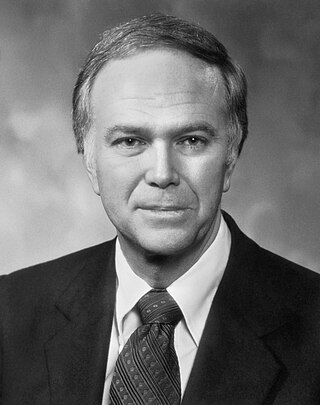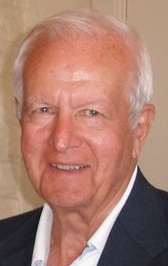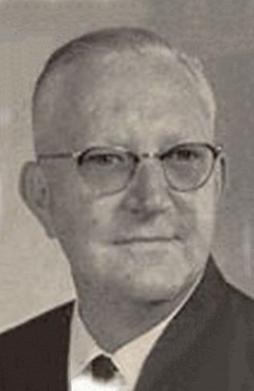
Robert William Packwood is an American retired lawyer and politician from Oregon and a member of the Republican Party. He resigned from the United States Senate, under threat of expulsion, in 1995 after allegations of sexual harassment, abuse and assault of women emerged.

Wayne Lyman Morse was an American attorney and United States Senator from Oregon. Morse is well known for opposing the Democratic Party’s leadership and for his opposition to the Vietnam War on constitutional grounds.

The 1996 United States Senate elections were held on November 5, with the 33 seats of Class 2 contested in regular elections. Special elections were also held to fill vacancies. They coincided with the presidential election of the same year, in which Democrat Bill Clinton was re-elected president.

The 1992 United States Senate elections, held November 3, 1992, were elections for the United States Senate. The 34 seats of Class 3 were contested in regular elections, along with special elections to fill vacancies. They coincided with Bill Clinton's victory in the presidential election. This was the first time since 1956 that the balance of the Senate remained the same.

The 1986 United States Senate elections were elections for the United States Senate. Held on November 4, in the middle of Ronald Reagan's second presidential term, the 34 seats of Class 3 were contested in regular elections. The Republicans had to defend an unusually large number of freshman Senate incumbents who had been elected on President Ronald Reagan's coattails in 1980. Democrats won a net of eight seats, defeating seven freshman incumbents, picking up two Republican-held open seats, and regaining control of the Senate for the first time since January 1981. This remains the most recent midterm election cycle in which the sitting president's party suffered net losses while still flipping a Senate seat.

The 1980 United States Senate elections were held on November 4, coinciding with Ronald Reagan's victory in the presidential election. The 34 Senate seats of Class 3 were contested in regular elections. Reagan's large margin of victory over incumbent Jimmy Carter gave a huge boost to Republican Senate candidates, allowing them to flip 12 Democratic seats and win control of the chamber for the first time since the end of the 83rd Congress in January 1955.

The 1974 United States Senate elections were held on November 4, with the 34 seats of Class 3 contested in regular elections. They occurred in the wake of the Watergate scandal, Richard M. Nixon's resignation from the presidency, and Gerald Ford's subsequent pardon of Nixon. Economic issues, specifically inflation and stagnation, were also a factor that contributed to Republican losses. As an immediate result of the November 1974 elections, Democrats made a net gain of three seats from the Republicans, as they defeated Republican incumbents in Colorado and Kentucky and picked up open seats in Florida and Vermont, while Republicans won the open seat in Nevada. Following the elections, at the beginning of the 94th U.S. Congress, the Democratic caucus controlled 60 seats, and the Republican caucus controlled 38 seats.

The 1968 United States Senate elections were elections for the United States Senate. Held on November 5, the 34 seats of Class 3 were contested in regular elections. They coincided with the presidential election of the same year. The Republicans picked up five net seats in the Senate. This saw Republicans win a Senate seat in Florida for the first time since Reconstruction.

The 1966 United States Senate elections were elections on November 8, 1966 for the United States Senate which occurred midway through the second term of President Lyndon B. Johnson. The 33 seats of Class 2 were contested in regular elections. Special elections were also held to fill vacancies. With divisions in the Democratic base over the Vietnam War, and with the traditional mid-term advantage of the party not holding the presidency, the Republicans took three Democratic seats, thereby breaking Democrats' 2/3rds supermajority. Despite Republican gains, the balance remained overwhelmingly in favor of the Democrats, who retained a 64–36 majority. Democrats were further reduced to 63-37, following the death of Robert F. Kennedy in June 1968.

The 1954 United States Senate elections was a midterm election in the first term of Dwight D. Eisenhower's presidency. The 32 Senate seats of Class 2 were contested in regular elections, and six special elections were held to fill vacancies. Eisenhower's Republican party lost a net of two seats to the Democratic opposition. This small change was just enough to give Democrats control of the chamber with the support of an Independent who agreed to caucus with them, he later officially joined the party in April 1955.

Robert Blackford Duncan was an American politician from the state of Oregon. A Democrat, he served multiple terms in the Oregon Legislative Assembly and as a U.S. congressman from Oregon. In the Oregon House of Representatives he served as speaker for four years, and in the U.S. House he represented two different districts. The Illinois native and World War II veteran ran three unsuccessful campaigns to be elected to the U.S. Senate.

Walter Leslie AuCoin is an American politician. In 1974 he became the first person from the Democratic Party to be elected to the U.S. House of Representatives from Oregon's 1st congressional district, since it was formed in 1892. The seat has been held by Democrats ever since.

The 1968 United States Senate election in Oregon was held on November 5, 1968. Incumbent Democratic U.S. Senator Wayne Morse was seeking a fifth term, but narrowly lost re-election to 36 year-old Republican State Representative Bob Packwood in a very close race.

The 1980 Oregon United States Senate election was held on November 4, 1980 to select the U.S. Senator from the state of Oregon. Republican candidate Bob Packwood was re-elected to a third term, defeating Democratic state senator Ted Kulongoski and Libertarian Tonie Nathan.

The 1992 United States Senate election in Oregon was held on November 3, 1992. Incumbent Republican U.S. Senator Bob Packwood won re-election to his fifth term. As of 2023, this is the last time the Republicans won the Class 3 U.S. Senate seat in Oregon.

Harold K. Lonsdale was an American scientist, businessman, and politician. A Democrat, he ran for United States Senate in the U.S. state of Oregon three times, losing twice in the primaries and once as the Democratic candidate, losing in the 1990 general election to incumbent Republican Mark Hatfield. In 2011 Lonsdale sponsored a research challenge to determine the origin of life on Earth.

The 1990 Oregon United States Senate election was held on November 6, 1990, to select the U.S. Senator from the state of Oregon. Republican candidate Mark Hatfield was re-elected to a fifth term, defeating Democratic businessman Harry Lonsdale.

The 1966 Oregon United States Senate election was held on November 6, 1966 to select the U.S. Senator from the state of Oregon. Incumbent Senator Maurine Brown Neuberger did not seek re-election. Held during the escalation of United States involvement of the Vietnam War, the race was between Republican candidate and incumbent Governor of Oregon Mark Hatfield, who opposed the war, and Democratic congressman Robert B. Duncan, who supported the war. In an unusual move, Oregon's other Senator, Democrat Wayne Morse, who also opposed the war, crossed party lines to endorse Hatfield, who won in a close election, his first of five terms in the United States Senate.

Benjamin M. Musa was an American politician who served four terms in the Oregon State Senate between 1949 and 1968, including serving as President of the Oregon Senate during the 1963–1964 legislative term. A CPA, he was a conservative Democrat from a rural district, known for his ability to work with Republicans as well as fellow Democrats in the state senate. Musa ran for governor in 1966, but lost the Democratic primary to Robert W. Straub.

Boyd Richey Overhulse was an American politician and attorney from Oregon. He served three terms in the Oregon House of Representatives followed by two terms in the Oregon State Senate. A conservative Democrat from a rural district, Overhulse was known for his ability to work with Republicans as well as fellow Democrats in the state legislature. He was elected President of the Oregon Senate eleven days after taking his seat in the state senate, the first Democrat elected to that position in 79 years.























